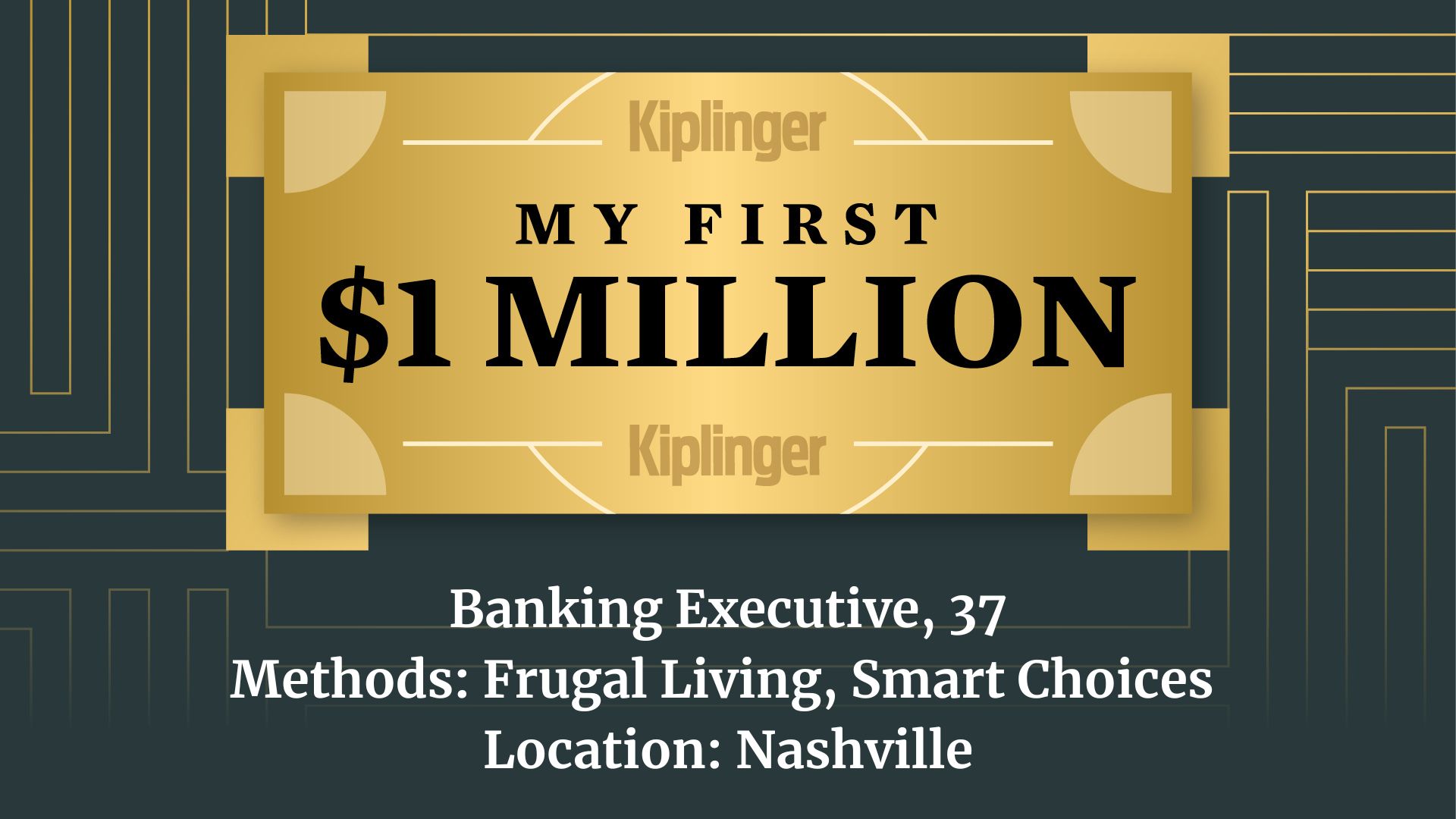Best Credit Unions 2025
Credit unions are nonprofit institutions owned by their members. Because they’re not profit-driven, they tend to keep fees low, and they may offer hefty yields.

Profit and prosper with the best of Kiplinger's advice on investing, taxes, retirement, personal finance and much more. Delivered daily. Enter your email in the box and click Sign Me Up.
You are now subscribed
Your newsletter sign-up was successful
Want to add more newsletters?
Are you looking for a better bank? You’re in the right place. With the help of Curinos, a financial-data provider, we’ve analyzed accounts at 40 financial institutions, evaluating them based on criteria including fees, minimum balance requirements, yields and the availability of extra perks, such as free checks or financial planning services. (For more on how we judged the contenders, see the methodology below.)
One alternative to traditional banks is a credit union. Credit unions are nonprofit institutions owned by their members.
Because they’re not profit-driven, they tend to keep fees low, and they may offer hefty yields. The institutions listed here have open membership to customers anywhere in the U.S.
From just $107.88 $24.99 for Kiplinger Personal Finance
Become a smarter, better informed investor. Subscribe from just $107.88 $24.99, plus get up to 4 Special Issues

Sign up for Kiplinger’s Free Newsletters
Profit and prosper with the best of expert advice on investing, taxes, retirement, personal finance and more - straight to your e-mail.
Profit and prosper with the best of expert advice - straight to your e-mail.
Alliant Credit Union
Standout account: Alliant’s no-fee High-Rate Checking account yields 0.25% if you meet simple requirements, and it reimburses out-of-network ATM fees.
Where it is: Alliant operates online.
How to join: Join the Alliant Credit Union Foundation; Alliant will make a $5 contribution to the foundation on your behalf.
Alliant’s free High-Rate Checking provides a 0.25% yield if you receive electronic statements and make at least one monthly electronic deposit. You also get $20 a month in rebates for out-of-network ATM fees. Teens between the ages of 13 and 17 can open a no-fee Teen Checking account, which offers a yield of 0.25% with the same eligibility requirements and ATM fee rebates. Parents own the account jointly with the teen (you must be an Alliant member to be a joint owner).
Alliant’s free High-Rate Savings account offers a 3.1% yield if you keep a daily balance of at least $100. Want to save for multiple financial goals? You can open separate Supplemental Savings accounts, which also offer a 3.1% yield with a $100 minimum balance. Children 12 or younger can get a jump start on saving with the Kids Savings account, which has the same yield and balance requirement as the other savings accounts. Among Alliant’s CDs, you could recently earn 4.3% with a one-year maturity ($1,000 minimum deposit).
Bellco Credit Union
Standout account: With the Boost Interest Checking account, you can earn a 4.5% yield by meeting certain activity requirements.
Where it is: About 30 branches in Colorado, with many in the Denver area.
How to join: Make a one-time, $5 donation to the Bellco Foundation.
As its name suggests, the Free Checking account has no monthly maintenance fee or minimum balance requirement. Bellco’s Student Checking account offers the same benefits for customers between the ages of 13 and 24, and the first box of checks is free. Boost Interest Checking boasts a 4.5% yield on a balance of up to $25,000 if you meet monthly requirements of making 15 debit card purchases, having at least one direct deposit, and logging into online or mobile banking. The premium Platinum Checking account waives its $12 monthly maintenance fee if you have a combined $15,000 in deposits and loans, and it offers perks including free standard checks, money orders, cashier’s checks and wire transfers.
Among savings options, the Premier Money Market account yields 2.7% if you have a balance of at least $10,000, or you can earn 3.25% with a balance of $50,000 or more; you must maintain a $10,000 balance to dodge a $10 monthly fee. The Youth Savings account, for customers between the ages of 13 and 24, provides a 3.25% yield on a balance up to $1,000. Traditional CDs recently offered a 3.9% yield on a six-month term and a 3.7% yield on a one-year term; the minimum deposit is $500.
Connexus Credit Union
Standout account: The free Xtraordinary Checking account has a remarkable 5% yield if you meet certain monthly requirements.
Where it is: More than a dozen branches in Illinois, Minnesota and Wisconsin.
How to join: Make a $5 donation to the Connexus Association.
The Simply Free Checking account has no monthly maintenance fee or minimum deposit requirement, and the free Xtraordinary Checking offers a juicy 5% yield on a balance of up to $25,000 if you meet monthly requirements of receiving electronic statements; making 15 debit card purchases or spending $500 on your debit card; and making at least $500 in direct deposits or certain other deposits. Plus, you get $15 monthly in reimbursement for out-of-network ATM fees. For those ages 10 to 17, the free Teen Checking account offers a 2% yield on balances up to $1,000.
For your savings, consider the Money Market Account. The yield depends on your balance; if you have a balance of $20,000 to $99,999, for example, you get a 2% rate. Connexus’s CDs require a $5,000 minimum deposit, and recently, the two-year CD offered a 4.06% yield.
Methodology
With data from Curinos, a financial-data provider, as well as from financial institutions and other sources, we evaluated 13 national banks, 14 internet banks (including online accounts from brokerage firms) and 13 credit unions. We reviewed checking accounts, savings accounts, money market deposit accounts and certificates of deposit from each institution.
We looked at interest rates; minimum deposit and balance requirements; monthly maintenance fees and the ease of waiving those fees; ATM benefits, such as waived or reimbursed fees for out-of-network withdrawals; free or discounted benefits, such as personal checks, cashier’s checks, paper statements and overdraft-protection transfers; overdraft fees and concessions, such as cushions; and online and mobile banking features, such as the availability of peer-to-peer payment services. Yields and other data listed in the article are as of early July.
Curinos LLC. Data is obtained from public sources; accuracy and completeness is not guaranteed. Curinos is not liable for reliance on the data.
Kiplinger's Best Banks
- Best National Banks
- Best Internet Banks
- Best Banks for High-Net-Worth Clients
- Best Banks for Retirees
- Best Banks for Travelers
Note: This item first appeared in Kiplinger Personal Finance Magazine, a monthly, trustworthy source of advice and guidance. Subscribe to help you make more money and keep more of the money you make here.
Profit and prosper with the best of Kiplinger's advice on investing, taxes, retirement, personal finance and much more. Delivered daily. Enter your email in the box and click Sign Me Up.

Lisa has been the editor of Kiplinger Personal Finance since June 2023. Previously, she spent more than a decade reporting and writing for the magazine on a variety of topics, including credit, banking and retirement. She has shared her expertise as a guest on the Today Show, CNN, Fox, NPR, Cheddar and many other media outlets around the nation. Lisa graduated from Ball State University and received the school’s “Graduate of the Last Decade” award in 2014. A military spouse, she has moved around the U.S. and currently lives in the Philadelphia area with her husband and two sons.
-
 Why Some Michigan Tax Refunds Are Taking Longer Than Usual This Year
Why Some Michigan Tax Refunds Are Taking Longer Than Usual This YearState Taxes If your Michigan tax refund hasn’t arrived, you’re not alone. Here’s what "pending manual review" means and how to verify your identity if needed.
-
 If You'd Put $1,000 Into Caterpillar Stock 20 Years Ago, Here's What You'd Have Today
If You'd Put $1,000 Into Caterpillar Stock 20 Years Ago, Here's What You'd Have TodayCaterpillar stock has been a remarkably resilient market beater for a very long time.
-
 Good Stock Picking Gives This Primecap Odyssey Fund a Lift
Good Stock Picking Gives This Primecap Odyssey Fund a LiftOutsize exposure to an outperforming tech stock and a pair of drugmakers have boosted recent returns for the Primecap Odyssey Growth Fund.
-
 5 Laundry Habits That Are Costing You Money
5 Laundry Habits That Are Costing You MoneyYou might be flushing money down the drain if you have any of these laundry habits.
-
 My First $1 Million: Banking Executive, 37, Nashville
My First $1 Million: Banking Executive, 37, NashvilleEver wonder how someone who's made a million dollars or more did it? Kiplinger's My First $1 Million series uncovers the answers.
-
 10 Decluttering Books That Can Help You Downsize Without Regret
10 Decluttering Books That Can Help You Downsize Without RegretFrom managing a lifetime of belongings to navigating family dynamics, these expert-backed books offer practical guidance for anyone preparing to downsize.
-
 New Ways to Keep Your Online Accounts Safe
New Ways to Keep Your Online Accounts SafeAs cybercrime evolves, the strategies you use to protect yourself need to evolve, too.
-
 Can Your Car Insurance Add Strangers to Your Policy? A Florida Class Action Lawsuit Could Decide
Can Your Car Insurance Add Strangers to Your Policy? A Florida Class Action Lawsuit Could DecideA Florida driver says GEICO added complete strangers to her car insurance policy and jacked up premiums as a result.
-
 Life Loves to Throw Curveballs, So Ditch the Rigid Money Rules and Do This Instead
Life Loves to Throw Curveballs, So Ditch the Rigid Money Rules and Do This InsteadSome rules are too rigid for real life. A values-based philosophy is a more flexible approach that helps you retain confidence — whatever life throws at you.
-
 The Best Short-Term CD for Your Cash in 2026
The Best Short-Term CD for Your Cash in 2026This strategy can help you earn thousands in months.
-
 What Is an Assumable Mortgage and Could It Save You Thousands?
What Is an Assumable Mortgage and Could It Save You Thousands?With mortgage rates still elevated, taking over a seller’s existing home loan could lower monthly payments — if the numbers work.